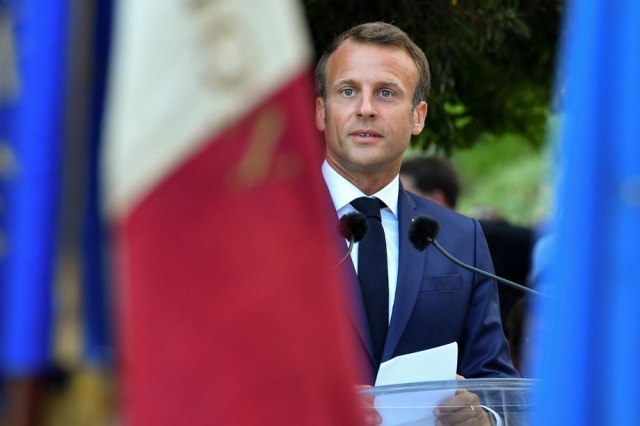
There is no doubt that Serbia, North Macedonia and Albania will have full support of French President Emmanuel Macron when it comes to "mini-Schengen" concept
SOURCE: TANJUG MONDAY, NOVEMBER 11, 2019 | 13:09
This is the opinion of the Director of the Center for Globalization, Dejan Miletic.
Serbian President Aleksandar Vucic is meeting with Macron, from whom, as he announced, he will seek support for "mini-Schengen", as well as answer to the question of what the future of the region is when it comes to European integration.
Miletic believes Macron is "the right address for it when it comes to the EU".
He stated that he was convinced that Germany's position on the regional initiative was positive, bearing in mind that through the Berlin Initiative it supported the rapprochement in the region, as well as being very economically active in Serbia, and counted with the expansion of the market for German companies that do business in our country.
"However, in that context, France is very important because of the political dimension and the desire to be more economically present in Serbia, and that means in the region. I have no doubt in Macron's support and his understanding of the concept", Miletic said.
He adds that he has no doubt that Macron understands that "mini-Schengen" is a good way for everyone in the region to show a desire to integrate into a much broader community such as the EU, adapting their systems of capabilities for stronger economic cooperation in the region and later with the EU.
"On this point, we are knocking on an open door with President Macron and there is no dilemma, there will be no disagreement", Miletic said.
He points out that he expects the French President to give some concrete guidance on what to expect from the EU, i.e. how the conditions of accession of Serbia and other countries in the region will change, what the criteria will be, whether the funds will be more flexible.
Miletic also expects bilateral relations to deepen in the right direction from the meeting of the two presidents, because, as he says, it builds trust and a relationship that will mean a great deal in the strategic sense, first of all to Serbia, of course, but also to France, since, as she says, it counts on Serbia as the leader of this region.
Miletic underlines the moment when the two presidents meet, when Macron announces the start of a different, active role for the EU, which, he believes, is important message saying that the EU is moving much more dynamically to engage on issues of its future, and in this context, the Western Balkans and the negotiations between the so-called state of Kosovo and Serbia, and that those Macron's announcements will also be the basis for President Vucic's discussing with him on all other aspects.
"I am sure that France wants development and peace in the region, and in that context, Serbia is the key to it and it is behaving in the same way as Serbia is constructive in its attitude", Miletic said.
Former Serbian Ambassador to France, Radomir Diklic, points out that Serbia cannot count on the "individual support" from France when it comes to European integration, but on a kind of encouragement that applies to the whole region. According to him, Macron is likely to explain in greater detail the idea of internal EU reform and the future enlargement policy in the meeting with President Aleksandar Vucic.
"We cannot get a date in this period. This is unrealistic to expect, but certainly President Macron will provide some clarifications", Diklic concluded.
However, he believes that the very fact that President Vucic meets with the French President on Tuesday is positive, because it is about "maintaining the continuity of mutual dialogue", but adds that he does not believe that Serbia can receive support individually.
"We can get the encouragement that already exists throughout the Western Balkans. Macron is a firm supporter of reforming the European Union first and then receiving other members. Of course, he does not decide alone, but certainly France's position is highly regarded within the EU", Diklic said for Tanjug.
He estimated that recent events, when North Macedonia and Albania were denied a date for the start of negotiations at the European Council, indicate a crisis in EU decision-making process and that the delay in enlargement is somehow a turning point in the creation of a new EU profile.
Professor on the Faculty of Political Sciences, Slobodan Samardzic points out that after Macron's statements, it is necessary to see in what direction the EU's goals will change.
Serbia and the region on the whole must accept the new reality - that there is no EU accession, and that a new model of cooperation is needed, a new type of contractual model between the EU and the countries of the region, because, as Samardzic reminds, the existing Stabilization and Association Agreement was aimed at the system of introducing full change within the candidate countries, prior to their being ready to join EU.
No comments:
Post a Comment